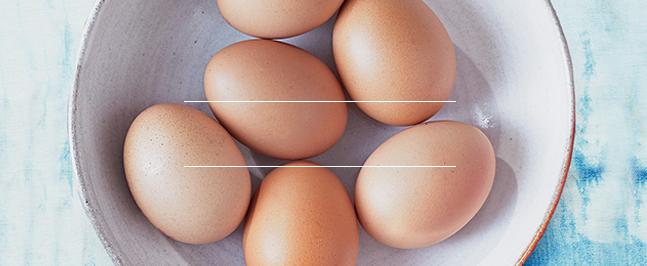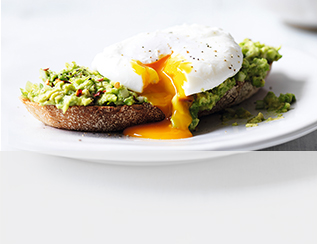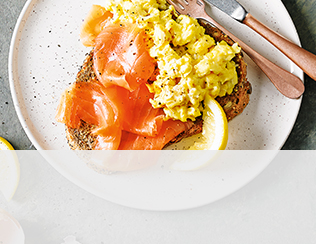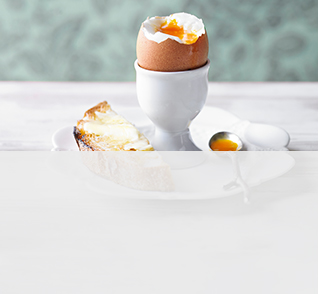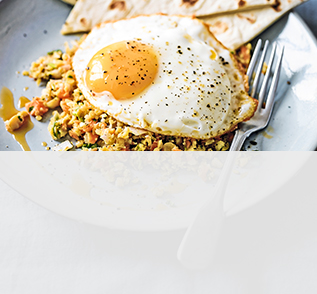Eggs are great value, high in protein and one of the most versatile foods around.
Poached, scrambled, boiled, fried, or made into an omelette, eggs need never get boring.
Eggs have many other uses - they can be used to glaze pastry, to thicken sauces, as a raising agent in meringues and soufflés and to set custards and batters.
Dressed up or pared down, make eggs your go-to for breakfast, lunch or dinner.

Egg recipes
How do you like yours?
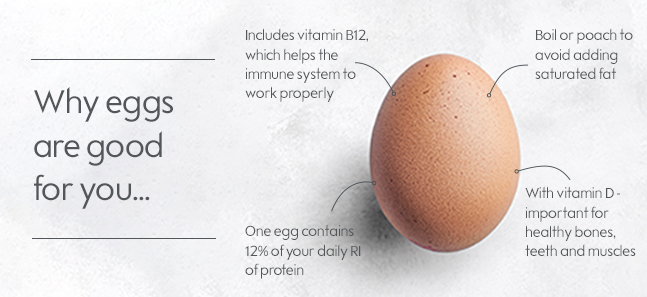
It's good news for lovers of eggs. Contrary to popular belief, there's no recommended
limit on how many you should eat.
Advice from the NHS is that if you eat a balanced diet, you only need to cut down if your doctor has told you to.
Nutrition-wise it's best to cook and eat eggs without adding salt or fat. Using a low-calorie method like poaching or boiling can reduce fat content by around 50%.

